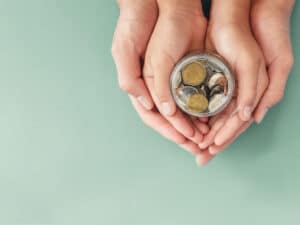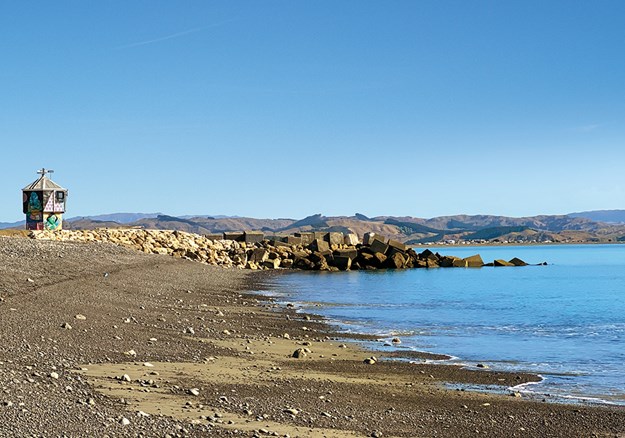 |
|
Perfume Point is the starfish capital of New Zealand
|
Have you ever heard the starfish story? It’s a short and rather charming tale about how one small action can make a big difference (read the story on the next page). It applies to motorhoming too, whether it’s assisting the fellow travellers we meet, or helping to improve the campground or park-up spot we find ourselves in. It would be fair to say that most of us living this way have a natural care and concern for our environment. Our consumption, our water and waste are very visible, and when other people don’t look after the spaces we occupy, we notice.
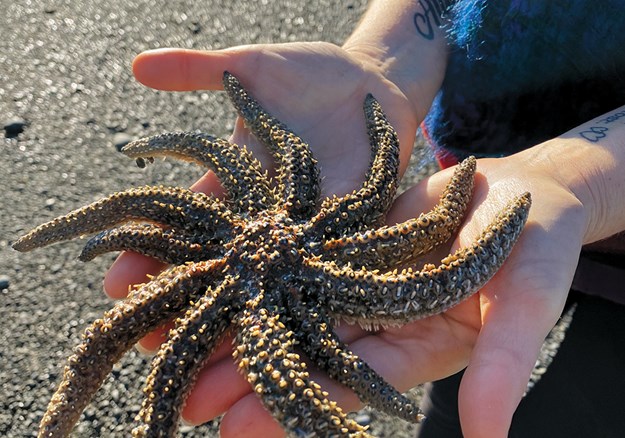 |
|
We find starfish in all shapes and sizes
|
Gareth and I learned very early on in our travels to ‘leave no trace’ wherever we went. We’ve all no doubt heard the motto, ‘take nothing but photographs, leave nothing but footprints or tyre tracks’. We decided we wanted to do better than that though, and have always strived to leave a place better than we found it. We neaten what needs tidying, clean whatever needs cleaning and we pick up any rubbish we find and dispose of it responsibly. Sure, it’s not always pleasant and it can make us grumble when it’s not our mess in the first place, but if we all just pretend it’s not there, it can spoil the next person’s stay, and the next – not to mention it makes ALL of us travellers look bad to the general public when they stumble upon it.
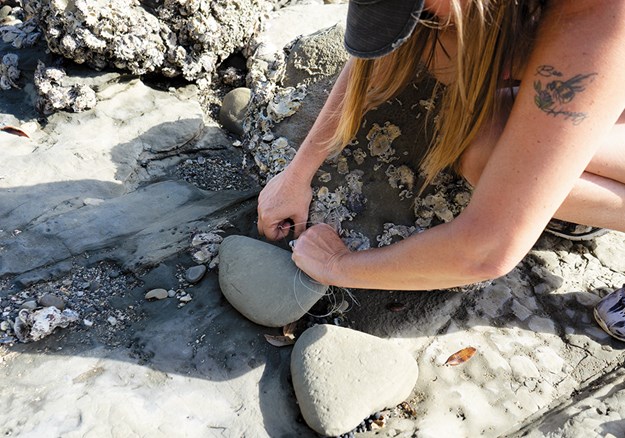 |
|
Untangling a birds’ nest of fishing line
|
BEACH PATROLS
Over the past couple of years however, it’s the beaches which have been our main focus. There’s nothing we like better than a good, long walk. Often we would stroll along a shoreline and wish we had thought to bring a rubbish bag with us, so we could pick up the litter we found, as it was always more than we could carry.
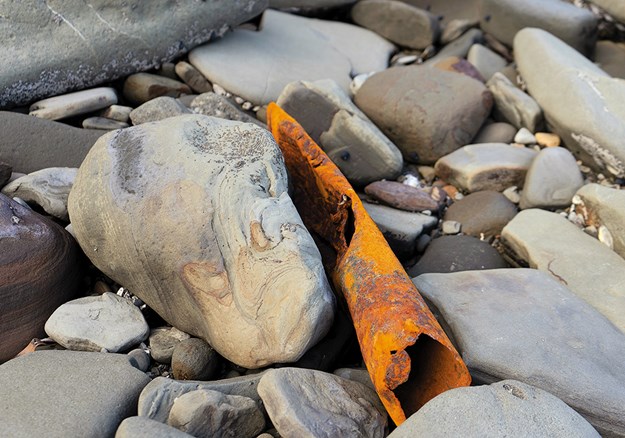 |
|
Rusty pipes are commonly washed up
|
It was a conversation with the founder of Sea Shepherd, Captain Paul Watson, which enlightened us about the horrifying state of our oceans and coastlines, and really made us step up our game. He told us the best thing those of us on land could do to help, was to take part in beach clean-ups. These are organised by Sea Shepherd and communities all over the country. Having encountered so much rubbish on the beaches already though, we realised we didn’t have to wait for those to happen. We could simply do our own, every time we went to the beach.
WOMBLING FREE
From then on, every time we went for a beach walk, we’d each take a backpack, with a rubbish sack lining the inside. Our mission began at the beautiful Kapiti Coast, which unfortunately was becoming the plastic bottle coast. The number of drink bottles washed up on the beach was unfathomable, and cans weren’t far behind.
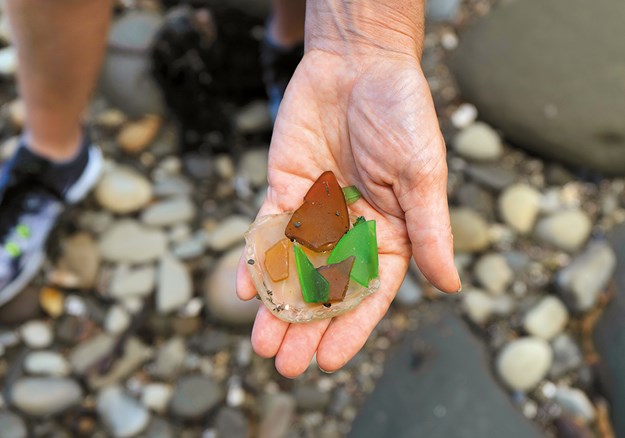 |
|
We’d hate a dog or child to step on these
|
Raumati and Waikanae had their fair share of litter but the worst by far was Paraparaumu. We would find enormous fishing nets, and even pieces of car, which we would haul up the shore to the rubbish bins, so they wouldn’t get washed away again with the tide. Our rubbish sacks would become full in no time and we would have to wait until the next beach walk.
“We’re like coastal Wombles,” Gareth said, referring to the fluffy creatures from our childhood, whose ongoing mission was to rid their beloved home at Wimbledon Common of litter. In our case however, our home was ever-changing and so our beach patrols changed with it.
SAVING STARFISH
Another area which kept us very busy was Napier. There, we were always fishing out coffee cups and fast-food packets. As for clothes, balls and children’s toys, we could have started our own shop. Never a day went by when we didn’t see small pairs of abandoned shoes sitting forgotten and forlorn, along with hats and shirts of every size and description, sodden and covered in sand.
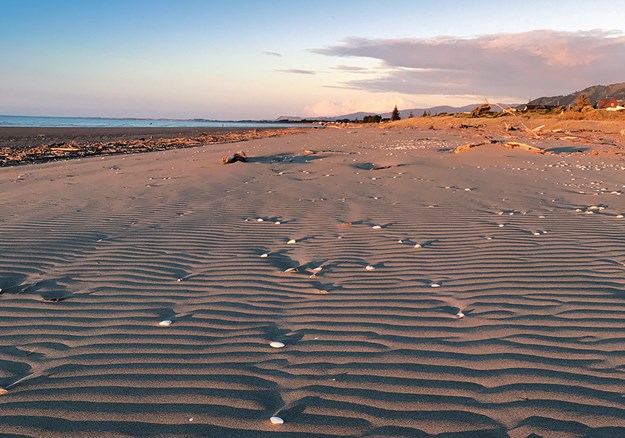 |
|
The beaches seem idyllic … until you look closer
|
During our time in Napier I also found another reason to visit the beach more often. The small bay at Perfume Point was often dotted with starfish at low tide, and it became rather an obsession of mine to gently return them to the sea, so they wouldn’t perish. Gareth would come and help me for a while, but some days there were literally hundreds and his patience would wane as I darted here and there, picking up handfuls of them. “You can’t save them all you know, it’s impossible,” he would sigh. “Yes, but I can save that one,” I’d insist as I spotted another, thinking of the starfish story.
LOOKING DEEPER
The beaches on the Hibiscus Coast have been by far the most confronting. It is here it became most apparent to us how much harm we humans do to our environment through our thoughtless actions. Here, it’s the fishing that does a significant amount of damage. We soon learned to wear protective gloves for handling fish hooks and lures, and carry a small pair of snippers to cut through the birds’ nests of fishing line entangled in the rocks.
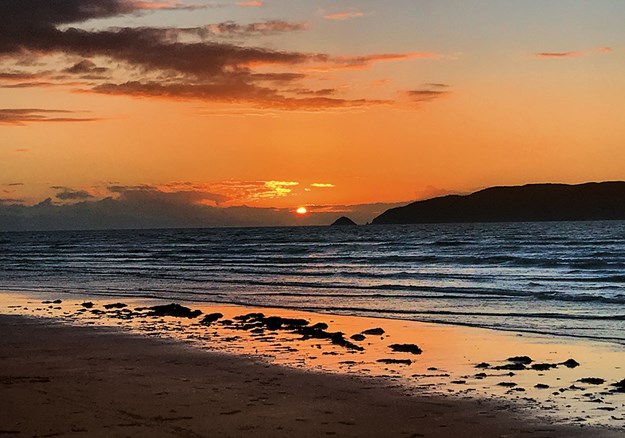 |
|
New Zealand is an amazing country – we all need to look after it
|
We have also retrieved many berley nets and sinkers, along with raincoats, assorted clothing and a collection of odd shoes. The glass is by far the worst, though. On just three walks along a 1.5km stretch, during Christmas and New Year, we collected 10kg of glass along the rocks and beaches. A lot of it was smooth and well tumbled, but many pieces were still jagged and sharp. I thought of all the dogs and children who ran freely through this area, and was glad that every piece we picked up was no longer a risk.
Don’t get me wrong, all these places are still stunning, and a delight to stay in! But when you look deeper, it becomes apparent we all have a lot of work to do in keeping New Zealand beautiful. Fortunately it isn’t hard at all. If we all do our bit, wherever we go, we can make a big difference.
THE STARFISH STORY
One day a man was walking along the beach when he noticed a boy picking up small creatures and gently throwing them into the sea.
Approaching the boy he said, “Young man, what are you doing?”
The boy replied, “Throwing starfish back into the ocean. The surf is up and the tide is going out. If I don’t throw them back, they’ll die.”
The man laughed to himself and said, “But don’t you realise there are miles and miles of beach and hundreds of starfish? You can’t possibly make any difference!”
After listening politely, the boy bent down, picked up yet another starfish and threw it into the surf. As it reached the water he smiled at the man and said,
“I made a difference for that one!”
Adapted from The Star Thrower, by Loren Eiseley
Find motorhomes, caravans and RVs for sale in NZ




